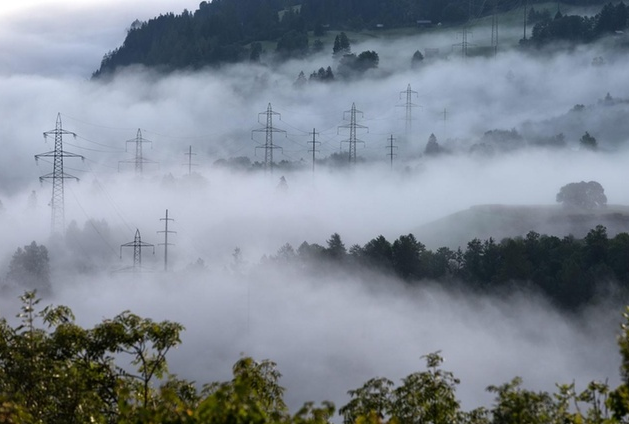The amount of electricity consumed in Switzerland has fallen by 6.4% over the past 19 years Switzerland is on track to meet its short-term greener energy goals, but the government warns that more work needs to be done to meet more ambitious mid-term targets by 2035. The alpine country plans to be carbon neutral by 2050. On Thursday, the Federal Office of Energyexternal link released its second report that monitors national energy consumption and its effect on the climate. Renewable energy sources accounted for 6.1% of net electricity production at the end of 2018 – some 3,877 gigawatt hours (GWh). This needs to be increased to 4,400 GWh by the end of next year and 11,400 GWh in 2035. This would require a net increase of 443 GWh per year. Last year saw average net
Topics:
Swissinfo considers the following as important: 3.) Swiss Info, 3) Swiss Markets and News, Business, Featured, newsletter
This could be interesting, too:
Nachrichten Ticker - www.finanzen.ch writes Die Performance der Kryptowährungen in KW 9: Das hat sich bei Bitcoin, Ether & Co. getan
Nachrichten Ticker - www.finanzen.ch writes Wer verbirgt sich hinter der Ethereum-Technologie?
Martin Hartmann writes Eine Analyse nach den Lehren von Milton Friedman
Marc Chandler writes March 2025 Monthly

The amount of electricity consumed in Switzerland has fallen by 6.4% over the past 19 years
Switzerland is on track to meet its short-term greener energy goals, but the government warns that more work needs to be done to meet more ambitious mid-term targets by 2035. The alpine country plans to be carbon neutral by 2050.
On Thursday, the Federal Office of Energyexternal link released its second report that monitors national energy consumption and its effect on the climate. Renewable energy sources accounted for 6.1% of net electricity production at the end of 2018 – some 3,877 gigawatt hours (GWh).
This needs to be increased to 4,400 GWh by the end of next year and 11,400 GWh in 2035. This would require a net increase of 443 GWh per year.
Last year saw average net production of 35,986 GWh from hydropower, a figure that needs to be raised to 37,400 GWh by 2035.
Energy consumption per capita targets have already been met for 2020, the report addedexternal link. At the end of 2018 this measurement had reduced by 17.2% from 2000, when figures are adjusted for weather conditions. By 2035, per capita energy consumption should fall 43% below 2000 levels. Electricity consumption has also met 2020 targets.
“In the longer term it is becoming apparent that further efforts are needed to gradually restructure the energy system and, in particular, to promote the expansion of renewable energies and energy efficiency,” the progress report states.
Switzerland’s Energy Strategy 2050 plans to reduce its net carbon emissions to zero by the middle of this century.
Tags: Business,Featured,newsletter
